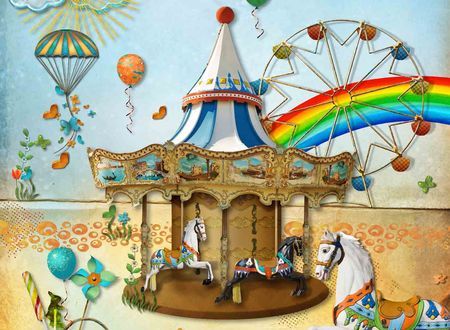The other day, someone I met for the first time asked me an interesting question. Referring to one of my posts on love, she said, “You wrote in your article that unconditional love is very rare. Isn’t a mother’s love for a child unconditional?” Before I tell you what answer I gave her, I would like to share with you a little story.
Once upon a time, there was a couple. They deeply loved each other but the wife could not conceive. She felt guilty for not being able to give a child to her husband. The medical examination, however, showed an alarmingly low sperm count in the husband. The equation suddenly changed. It was his inability to supply a healthy seed that she could not reproduce.
Eventually, they got lucky one day and she conceived. While she was pregnant, the state came under siege from enemy forces. In that war, they lost their home and had to go to a rehabilitation camp. She delivered a baby boy while in the camp, prematurely. Over time, things began to normalize and they got a new home. They doted on their son. Their life revolved around him. Twelve years passed.
Someone knocked on their door one day. It was a lady with a young boy and a couple. As fate would have it, they found out that at the time of the child’s birth, due to the chaos at the rehabilitation camp, the children had actually been exchanged in the incubator. Before the staff member could rectify the mistake, she suffered a deep wound in a bomb blast and went into a coma for twelve years. She said she had come to give them back their real son. She further informed them that the couple accompanying her were the real parents of the boy they thought was their son all along.
The lady and her husband were shocked. So was the boy. The boy didn’t want to go to his new parents. He just wanted to stay where he was. The woman didn’t want to let go of him either, but the moment she took one look at her real son, she faced the greatest dilemma of her life. She felt pulled, attracted, and naturally inclined towards him.
The dilemma was not about choosing one over the other, it was emotional turmoil and great confusion about how come she felt a surge of emotions for a boy she saw for the first time in her life. How come she was feeling greater love for her real son, she thought. She did not want to let go of the child she had brought up either. The attachment was too great, with too many memories. But she certainly couldn’t give up her real son, she felt. The other woman felt the same about her son.
Just reflect on the story. Take your time. Let it sink in. There is no doubt that a mother’s love for a child is one of the highest types. For a mother, it is full of personal sacrifices. It is one of the purest types because a mother’s primary wish is to see her child well. She’s generally willing to give up anything for the welfare of her children. In the context of her own life and that of her child, a mother’s love is selfless. That said, in the broader context, it is a little more complicated. And is it unconditional?
It is love, yes, it is perhaps closest to pure love. It may even be the definition of quintessential love. But it is not unconditional; a human relationship is seldom unconditional. The first condition is the child itself. The child has to be hers. She wouldn’t feel the same intensity for just any other child. It is not about a mother and any child but about a mother and her child. Imagine a criminal who brutally raped and killed his victim and is waiting for a sentence.
Let’s assume he’ll be sentenced next week where he may be let off with a life sentence, or he may be sent to the chair. The mother of even such a criminal prays to God for his protection and pardon. She doesn’t want her son to die. She knows he ruined a life and caused irreparable damage to the victim’s loved ones. Yet, she still wouldn’t want her son to be punished.
Why is a mother often willing and able to forgive even the gravest acts of her children? The attachment she has with her children, the love she feels for them far exceeds in ardor and fullness compared to any other relationship. Why? Let me offer you my perspective. As follows:
The truth is a mother and her child are not separate entities. A child is a part of the mother in every aspect. He literally comes out of her body, they are created from her very own egg. In the womb, he partakes of the same food. A child is a mother’s life walking outside, an extension. In fact, a mother achieves immortality through her child. She lives on beyond her own years through that child. She rejoices in seeing her child outdo her because she is not competing against him. You cannot compete against yourself.
So, if you cannot compete against yourself, why is it not uncommon to see mother-daughter envy though. It’s simple. A daughter is a part of her mother, a living derivative. What you see in such a scenario is mere internal conflict projected on the relationship outside. It is not competition leading to conflict, it is the other way around. The harder a mother’s own life, the greater the chance of such conflict.
Often, conflict is merely a reflection of the degree of attachment one may have to a certain viewpoint, object, or person, themselves included. Both a mother and her daughter are potent carriers of civilization, of love, of care, compassion, and a genetic signature.
It is for this reason that the love a mother has for her child is beyond classification. I may say that it is not unconditional but in all honesty, I would prefer to stay away from categorizing it as selfless or selfish, conditional or unconditional, and so on. It simply is beyond words. No one is smart enough, no words so profound, no intellect so great to even begin understanding the divinity of a mother’s love, much less encapsulate it.
If you have not hugged your mother and expressed your love and gratitude to her, if you have never sat by her feet thanking her for all she has done for you, you have not yet discovered the divine side of love that is latent in you. We shouldn’t be celebrating just Mother’s Day but Mother’s Years and Mother’s Lifetimes. Such is my view, you are free to have your own.
It so happens that it’s Mother’s day tomorrow. Make it a special one.
Peace.
Swami
Course
Art of Meditation
Free yourself from suffering and live life to the fullest. Learn the yogic technique of meditation in 4 days (and master it over a lifetime)
It is never easy being a parent. Be it a mother’s love or a father’s care, a parent always worries that what they are doing is not enough. The questions below provide a deeper understanding of parenting, including single parenting. If you are a single parent and feel that a mother’s love cannot compensate for a father and vice versa, there is hope. Read on for more insight.
I worry I’ve been a bad parent. Is a mother’s love for her children enough to look past the ways in which I messed up?
There is no absolute good or bad way of bringing up children. Nature allows for an allowance, allowance of certain mistakes, some wrong choices, and a few bad decisions. It’s human; it’s natural. If you did what you thought was good at the time, and it didn’t work out well, take it easy; it was an honest mistake. Forgive yourself.
If you loved them the best you could, if you provided for them to your capacity, trust me, you did just fine. This is a mother’s love, and it is enough.
Read more here.
While a mother’s love is an important aspect, what else can I inculcate to be a better parent?
Be patient. Understand that when you were 15 or 20, you were going through very similar challenges too as they are facing now. As parents, you only mean well, but you can’t teach them everything. And you shouldn’t try to. For there are certain lessons, only life can impart. And, life never transmits a lesson alone. It does so with time. While a mother’s love may propel you to lecture them, refrain and let them learn.
There are five aspects of parenting, including compassion. Inculcate them, and any relationship becomes divine.
Read more here.
I lacked a mother’s love growing up because my parents were always fighting. Was it my fault she didn’t pay attention to me?
All I want to say to all my grownup readers who had a difficult childhood is that it’s not your fault. When your parents were squabbling and arguing, when they were whining and fighting, it was not your fault. When you couldn’t set things right, when you couldn’t comfort them, when you became the target of their wrath, it was not your doing.
Their immaturity was never a reflection on you, they had their own problems; it was not about you. You were not the reason but the victim. You deserved a mother’s love and a parent’s care.
Read more here.
I am a single parent. Is a mother’s love enough to compensate for the absence of a father in my child’s life?
What matters more is not whether a child has been raised by a single parent but if she’s been provided a loving environment conducive to personal growth. This is really the spiritual perspective I wish to offer: a close-knit family with fewer people, even just a mother’s love, is infinitely better than a toxic one with more people.
When two partners frequently argue, quarrel, and fight, this has a telling impact on the child. In such a case, in my opinion, it’s better to split and be at peace than live in a tense, unpredictable, and unhealthy environment.
Read more here.
As it often happens with a mother’s love, her concern for my wellbeing ended in a fight and harsh words. How do I be mindful with my words so that this doesn’t happen again?
None of what seems most important right now will even matter when the time comes. You may as well then make your present time beautiful and meaningful. Be gentle — with yourself and others. Be it a mother’s love or anybody else’s, when we learn to receive it with compassion, we are doing everybody a great service.
In the words of an Auschwitz survivor, “I will never say anything that couldn’t stand as the last thing I ever say.” What a beautiful way to practice mindfulness of speech. Imagine if we extended it to our actions and thoughts too. Such a person will become a beacon of hope and love for eternity.
Read more here.
A GOOD STORY
There were four members in a household. Everybody, Somebody, Anybody and Nobody. A bill was overdue. Everybody thought Somebody would do it. Anybody could have done it but Nobody did it.
Don't leave empty-handed, consider contributing.It's a good thing to do today.









Comments & Discussion
16 COMMENTS
Please login to read members' comments and participate in the discussion.